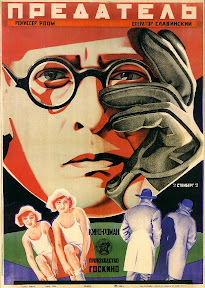The notion of the Will to Power describes the will as both commanding and obedient; the orb that floats between magnets, constrained by both positive and negative elements.
"It is almost always a symptom of what is lacking in himself when a thinker senses in every "causal connection" and "psychological necessity" something of constraint, need, coompulsion to obey, pressure, and unfreedom; it is suspicious to have such feelings -- the person betrays himself. And in general, if I have observed correctly, the "unfreedom of the will" is regarded as a problem from two entirely opposite standpoints, but always in a profoundly personal manner: some will not give up their "responsibility," their belief in themselves, the personal right to their merits at any price (the vain races belong to this class). Others, on the contray, do not wish to be answerable for anything, or blamed for anything, and owing to an inward self-contempt, seek to lay the blame for themselves somewhere else."
--Nietzsche, Beyond Good and Evil
The will is classically indicted for some form of manipulation. It seems that both strong and weak willed, as examples, mingle with each other. Most often one wants true credit for their merits, but will take no responsibility for an error or failing.
Nietzsche also talks about the way that the modes of interpretation affect truth. One takes a necessary jumping-off point and assumes correctness because of fluidity of connections. Different intentions reveal different readings.
[As an aside, I mistakenly sat down at an extremely well concealed Christian cafe. A missionary group wandered in as I was reading this quote, and I was struck by it:]
"Books for all the world are always foul-smelling books: the smell of small people clings to them. Where the people eat and drjnk, even where they venerate, it usually stinks. One should not go to church if one wants to breathe pure air."
--Nietzsche, Beyond Good and Evil
Here Nietzsche is showing his nihilism and dislike of humanity, because he sees it as ignorant and superficial. The intelligent man, he claims, recognizes the ignorance and superficiality in other men. There is a repression of awareness and a laziness to question in the indigent, causing them lie to themselves for the sake of themselves.
"A man whose sense of shame has some profundity encounters his destinies and delicate decisions, too, on paths which few ever reach and of whose mere existence his closest intimates must not know: his mortal danger is concealed from their eyes, and so is his regained sureness of life. Such a concealed man who instinctively needs speech for silence and for burial in silence and who is inexhaustible in his evasion of communication, wants and sees to it that a mask of him roams in his place through the hearts and heads of his friends. And supposing he did not want it, he would still realize some day that in spite of that a mask of him is there -- and that this is well. Every profound spirit needs a mask: even more, around every profuound spirit a mask is growing continually, owing to the constantly false, namely shallow, interpreation of every word, every step, every sign of life he gives.--"
--Nietzsche, Beyond Good and Evil
So the common man constitutes an image of the intelligent man(a philosopher for Nietzsche) by the way that his words are misinterpretted and taken to mean different things than their honest meanings. A mask is grown around this man because he is considered in the way others see him; he is alienated from the common man because his views must be digestible and accessible.
Subscribe to:
Post Comments (Atom)


No comments:
Post a Comment